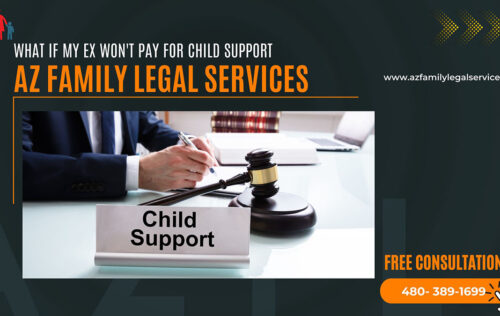Do Children Have The Right to Choose Which Parent They Live With in a Divorce?

Going through a divorce is undoubtedly a challenging and emotional process for all parties involved, but it can be especially difficult for children. One of the key decisions that parents face during divorce proceedings is determining which parent the child will live with. This raises an important question: Do children have the right to choose which parent they live with in a divorce?
In the state of Arizona, the answer to this question is not a straightforward one. Let’s explore the factors used to determine child custody in Arizona and shed light on this complex issue.
Factors Used to Determine Child Custody in Arizona:
When it comes to determining child custody in Arizona, the primary consideration is the best interests of the child. The Arizona Revised Statutes (A.R.S. 25-403) outline several factors that courts take into account when making custody decisions. These factors include:
The child’s wishes: While the child’s preference is considered, it is important to note that the weight given to their choice depends on their age, maturity, and ability to express their reasoning.
The child’s relationship with each parent: Courts assess the emotional bond and interaction between the child and each parent. They also consider the ability of each parent to provide for the child’s physical, emotional, and developmental needs.
The child’s adjustment to home, school, and community: Stability is a crucial factor. The court examines how the child has adjusted to their current environment and evaluates the potential impact of changing living arrangements.
Each parent’s mental and physical health: The court takes into consideration the physical and mental well-being of each parent. This assessment is aimed at ensuring that the child will be provided with a safe and nurturing environment.
The child’s interactions with siblings and others: The court assesses the relationships the child has with siblings, extended family members, and other significant individuals in their life.
History of domestic violence or child abuse: Any history of domestic violence or child abuse is taken seriously by the court. The safety and welfare of the child are of paramount importance in custody determinations.
The willingness of each parent to facilitate a meaningful relationship with the other parent: Courts consider the willingness of each parent to encourage and support a healthy and ongoing relationship between the child and the other parent.
Child's Right to Choose:
While Arizona law takes into account the child’s wishes, it does not explicitly grant children the right to choose which parent they live with during a divorce. Instead, the court uses the child’s preference as one of several factors to be considered. The weight given to the child’s wishes depends on the circumstances and the child’s age and maturity level.
The Role of Legal Representation:
Navigating the complexities of child custody during a divorce can be overwhelming. Seeking legal representation from an experienced family law firm, such as AZFLS, can help ensure that your child’s best interests are protected.
AZFLS - Advocating for Your Family's Best Interests:
If you find yourself in the midst of a divorce and grappling with child custody issues in Arizona, AZFLS is here to provide you with expert guidance and support. With our deep understanding of Arizona family law, we are committed to advocating for your family’s best interests.
Our skilled attorneys will work tirelessly to ensure that the court considers all relevant factors in determining the custody arrangement that is most favorable for your child.
Conclusion
While children in Arizona do not have an absolute right to choose which parent they live with in a divorce, their preferences are considered by the court. The determination of child custody is based on multiple factors that prioritize the best interests and well-being of the child. If you are facing child custody issues in Arizona, it is crucial to consult



